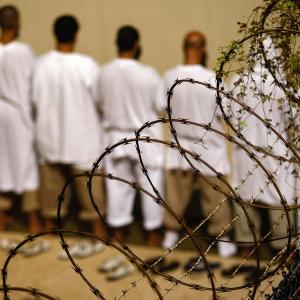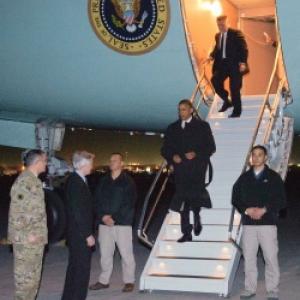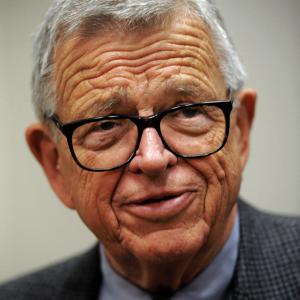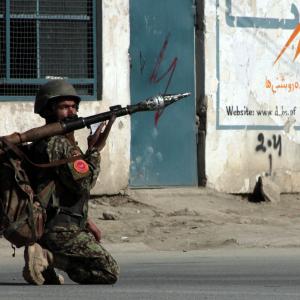
Duane Shank was Associate Editor for Sojourners magazine and was on the staff from 1995 to 2014.
Duane has been active as an organizer and administrator in the peace and justice movement for 35 years, beginning as a draft resistance and antiwar organizer during the Vietnam war. He has worked as a community organizer in the rural south, in interfaith coalitions, and in the nuclear weapons freeze and Central America solidarity movements of the 1980s. His positions have included Associate for the National Inter-religious Service Board for Conscientious Objectors; National Coordinator for the Committee Against Registration and the Draft; Deputy Director and Acting Executive Director for SANE/Freeze; and Research Fellow for the Institute for Policy Studies.
Duane attended Eastern Mennonite University. He is a Anabaptist/Mennonite, and currently an active member and serves on the worship leadership team of the Community of Christ ecumenical congregation in the Mt. Pleasant neighborhood of Washington, D.C. His views on faith and politics have been shaped by (among others), John Howard Yoder, Abraham Joshua Heschel, Martin Luther King, Jr., Dietrich Bonhoeffer, and Oscar Romero.
Duane is married to Ellen Kennel. They have a daughter, Celeste, a graduate of Goshen College, IN, the Medill School of Journalism at Northwestern University, and the University of Chicago Divinity School.
In addition to family, church, and work; his passions are baseball (Washington Nationals), blues (Buddy Guy and Stevie Ray Vaughan) and bluegrass music (Ralph Stanley), and barbecue.
Posts By This Author
On Anniversary of Bin Laden's Death, Heated Debate about Torture Use
The anniversary of Osama bin Laden’s death at the hand of U.S. troops has reawakened the political controversy over the use of torture.
In an opinion piece today, Jose Rodriguez, Jr., former director of the CIA’s National Clandestine Service, says it wouldn’t have happened without torture. He writes of an al-Qaeda operative captured in 2004, who was “taken to a secret CIA prison – or ‘black site’ – where he was subjected to some ‘enhanced interrogation techniques.’”
Breaking: President Obama in Afghanistan
President Barack Obama landed in Afghanistan this afternoon on an unannounced trip. He will meet with Afghan President Hamid Karzai and sign a strategic partnership agreement pledging U.S. support for Afghanistan for a decade after 2014 when the U.S. combat role is set to end.
Obama will then deliver a live, televised speech to the American people on live television at 7:30 this evening (Tuesday). He is expected to give an update on Afghan withdrawal plans.
Update—5 p.m.
Presidents Obama and Karzai have signed in Kabul a strategic partnership agreement between the two countries.
The Associated Press reports:
“The partnership spells out the U.S. relationship with Afghanistan beyond 2014, covering security, economics and governance. The deal is limited in scope and essentially gives both sides political cover: Afghanistan is guaranteed its sovereignty and promised it won't be abandoned, while the U.S. gets to end its combat mission in the long and unpopular war but keep a foothold in the country. The deal does not commit the United States to any specific troop presence or spending. But it does allow the U.S. to potentially keep troops in Afghanistan after the war ends…”
“At a signing ceremony in Kabul with Afghan President Karzai, Obama said the agreement paves the way for 'a future of peace’ while allowing the United States to ‘wind down this war.’ Karzai said his countrymen ‘will never forget’ the help of U.S. forces over the past decade.”
U.S. Kills With Armed Drones
News flash: The U.S. is using remotely piloted drones for targeted killing strikes against suspected terrorists. If you don’t think that’s news, you’re right. For years, it’s been the worst kept secret in Washington, but a speech yesterday by White House counterterrorism adviser John O. Brennan was the first official acknowledgement of the program. He insisted that it is consistent with U.S. and international law, even while admitting that civilians have been killed.
The news report noted,
"Brennan’s speech was also noteworthy, however, for what he withheld. He did not disclose how many people have been killed, list all the locations where armed drones are being flown or mention the administration’s increasing reliance on “signature” strikes, which allow the CIA to fire missiles even when it doesn’t know the identities of those who could be killed".
While this policy of targeted assassination should be ended immediately, the admission that it exists is an important step toward an important public debate.
Warrior in Chief
Peter Bergen, a director of the New America Foundation, writes: “The president who won the Nobel Peace Prize less than nine months after his inauguration has turned out to be one of the most militarily aggressive American leaders in decades.”
And he adds up the evidence of the past four years:
"Mr. Obama decimated Al Qaeda’s leadership. He overthrew the Libyan dictator. He ramped up drone attacks in Pakistan, waged effective covert wars in Yemen and Somalia and authorized a threefold increase in the number of American troops in Afghanistan. He became the first president to authorize the assassination of a United States citizen, Anwar al-Awlaki, who was born in New Mexico and played an operational role in Al Qaeda, and was killed in an American drone strike in Yemen. And, of course, Mr. Obama ordered and oversaw the Navy SEAL raid that killed Osama bin Laden."
These actions, allegedly against the “threat of terrorism,” are reminiscent of the so-called Reagan Doctrine against the “threat of communism” in the early-to-mid 1980s. We’re still paying the price for the use of covert operations to attack insurgents, while supporting repressive and corrupt governments in that era. The Mujaheddin who were armed and trained to fight the Soviet occupation of Afghanistan are now the Taliban and Al Qaeda fighting the U.S. occupation. The price of the last four years is yet to be seen, but history suggests it will be substantial.
SCOTUS Hears Immigration Arguments
The future of Arizona’s immigration law, and by extension the laws in a number of other states modeled on it, was argued before the Supreme Court this morning. While it’s always dangerous to read too much into the questioning during the oral argument, early news reports indicate that the justices were sympathetic to the provision allowing police officers to check the immigration status of people who are arrested or otherwise detained.
According to the Associated Press:
"Liberal and conservative justices reacted skeptically to the Obama administration's argument that the state exceeded its authority when it made the records check, and another provision allowing suspected illegal immigrants to be arrested without a warrant, part of the Arizona law aimed at driving illegal immigrants elsewhere."
The Court’s decision is expected in June, and could become an important issue in the presidential election campaign.
Remembering Charles Colson
Charles Colson, former aide to President Richard Nixon and founder of Prison Fellowship, passed away Saturday at the age of 80. His death came as a result of complications of a brain hemorrhage.
Many news stories this weekend emphasized Colson’s role in the Watergate scandal of the mid-1970s, in which he led Nixon’s efforts to discredit Daniel Ellsberg following the release of the Pentagon Papers on U.S. decision making during the Vietnam war. As a result of those activities, he pled guilty to obstruction of justice and served seven months in prison. Shortly before going to prison, Colson had a religious conversion to Christianity. And that led to the more important part of his life.
Take to the Streets
A provocative piece this morning from Akiva Eldar, chief political columnist and an editorial writer for Haaretz. He describes the weakness of the Israeli government when faced with non-violent protest:
“They say the Israel Air Force can carry out a pinpoint strike against Iran's nuclear facilities, yet the Israel Defense Forces loses its cool when confronted by a small group of bicyclists armed solely with cameras. The Shin Bet security service knows how to locate terrorists and assassinate them, but has no clue how to cope with nonviolent civil disobedience.”
After recounting all of the futile efforts at diplomacy and negotiations by the Palestinians in their suits and ties, Eldar advises:
“If Abbas was really so fed up he would replace his tie with a kaffiyeh and lead the masses in a protest march. The Oslo Accords have turned the Palestine Liberation Organization into the mechanism for maintaining the Israeli occupation. It's about time the Oslo generation of Palestinians admits the failure of the diplomatic option, hangs up its suits, weans itself from the pathetic honor it has accorded itself, and takes to the streets.”
I can hear Gandhi and Dr. King cheering.
The Next War?
The U.S. and European allies in the so-called “Friends of Syria” took another step down the slope toward military intervention this week. In a Paris conference, the talk was tough, especially from Secretary of State Hillary Clinton.
The Washington Post began its story, “The United States, France and 13 other nations demanded Thursday that Syria immediately cease military operations against rebel forces and allow unfettered deployment of U.N. observers, suggesting that use of force will be considered if Damascus fails to comply.”
It continued by quoting Sec. Clinton making the suggestion more concrete: “I think we have to do more to take stronger action against the Assad regime,” she said. “We need to start moving very urgently in the Security Council for a Chapter 7 sanctions resolution, including travel, financial sanctions, an arms embargo and the pressure that that will give us on the regime to push for compliance with Kofi Annan’s six-point plan.”
The New York Times added that “Mrs. Clinton said the United States was increasing its nonmilitary aid. Other countries may be doing more with military training. But ‘we are expanding our communications, logistics and other support for the Syrian opposition,’ she said.”
One might think that after Iraq, Afghanistan and Libya, we have learned that military intervention usually does not solve the problems it purports to, and in fact, many times exacerbates them. Yet with expanded drone strikes in Yemen, the continuing threat of attacks on Iran, and the growing war talk on Syria, we seem to have learned nothing. Stay tuned for the next war.
Duane Shank is Senior Policy Advisor at Sojourners. You can follow him on Twitter @DShankDC.
Drones in Yemen
It seems that drones have become the administration’s favorite form of warfare. There’s no danger to American troops, just unmanned aircraft killing from the skies. They’ve been used in Iraq, Afghanistan, Pakistan, Somalia, Libya, and Yemen.
The campaign in Yemen has so far relied on targeting specific individuals in an attempt to distinguish between al Qaeda leaders and Yemeni insurgents. But the CIA is now seeking to expand the campaign by asking for authority to launch strikes without knowing the identities of those being attacked. They call it “signature strikes,” choosing targets based on suspicious behavior. This, the CIA claims, involved putting together multiple intelligence reports to arrive at “signatures” of al-Qaeda activity based on vehicles, facilities, communications equipment and patterns of behavior.
Assassinating specific individuals (and often their wives, children and other people who happen to be with them) is bad enough. Attacks based on “signatures” of suspicious behavior is worse. Is a group of people gathering in a house an al Qaeda meeting, or a wedding? Is a truck convoy carrying weapons, or goods to market? It seems to me that if approved, it’s a policy change that will result in more civilian casualties and more questions about the use of drones.
Duane Shank is Senior Policy Advisor at Sojourners. You can follow him on Twitter @DShankDC.
Plowshares into Swords
Under a mandate from the budget resolution passed by the House in March, committees are required to cut discretionary programs to avoid the automatic cuts in military spending to take effect in January. The funds cut are to be moved from the nondefense to the defense categories in the budget. Yesterday, the House Agriculture Committee produced its share by cutting $33 billion from the Supplemental Nutrition Assistance Program (SNAP, or food stamps).
Rep. Collin Peterson of Minnesota, the ranking Democrat on the Committee had this response: “You can’t have a serious conversation about getting the budget under control when you take large items like defense off the table, which is really why we are here. Taking a meat-ax to nutrition programs that feed millions of working families in this country in order to avoid defense cuts is not a serious way to achieve deficit reduction.”
The Center on Budget and Policy Priorities estimates that a cut this large would result in 2 million people losing benefits and the remaining 44 million having theirs reduced. So here’s the equation, more hungry people = more weapons for war. It’s clear and direct.
Duane Shank is Senior Policy Advisor at Sojourners. You can follow him on Twitter @DShankDC.
Remembering the Holocaust
Today is the anniversary of the Warsaw Ghetto uprising in 1943, and the day designated as Holocaust Remembrance Day. Ari Shavit, senior correspondent and editorial board member of Haaretz newspaper has some important reflections on how that remembrance is used and misused.
We are being torn between those who mention Auschwitz so that Israel will be deemed innocent in every situation, and those who distance themselves from Auschwitz so that Israel will always be guilty. As a nation, we have lost the ability to experience the Holocaust both as a universal event with humanitarian significance and as a unique event with Jewish and Israeli significance. …
It is our duty not to speak harshly and not to exploit it. The Holocaust was a terrifying event of insanity. The true imperative to be derived from the Holocaust is the imperative of sanity. Not to be enslaved to the past but also not to be alienated from it. To observe death, and to remember death - and to choose life.
In a world that seems dominated by death – from Afghanistan, Iraq and Syria; to South Sudan and the Congo; this day should allow us to reflect on the 6 million Jews who died in Europe and to redouble our efforts to work for life for the millions dying or threatened with death today.
Duane Shank is Senior Policy Advisor at Sojourners. You can follow him on Twitter @DShankDC.
In the Stacks, April 18, 2012
Among my must reads are the Sunday New York Times Book Review and other book reviews I come across in various media outlets. There are too many books being published that I would love to read, but just don’t have the time. So, I rely on reading book reviews as one way of keeping in touch with what’s being written.
Here are my picks in this week’s books of interest.
The Cost of the Military
Each year, the Stockholm International Peace Research Institute (SIPRI) publishes a study on the amount world governments spend on their militaries. The 2011 report was released this week, showing that all countries together spent $1.7 trillion. The Guardian has a helpful country-by-country data page and interactive map. The top 5 in the world last year, totaling $1.05 trillion, were:
U. S. - $711 billion
China - $143 billion
Russia - $72 billion
Britain - $63 billion
France - $62 billion
In contrast, the budget for UN Peacekeeping operations for fiscal year July 2011-30 June 2012 is about $7.84 billion. That’s 0.5 percent of what the world spends on its militaries.
It’s a stark example of the world’s misguided priorities.
The Lesson of History
On November 21, 1967, General William Westmoreland, U.S. commander in Vietnam, delivered a speech at the National Press Club on war strategy. “We have reached an important point when the end begins to come into view,” he said, and outlined a “new phase” in the war where the U.S. would:
- Help the Vietnamese Armed Forces to continue improving their effectiveness.
- Help the new Vietnamese government to respond to popular aspirations and to reduce and eliminate corruption.
- Help the Vietnamese strengthen their policy forces to enhance law and order.
Then came what is now known as the Tet Offensive. On January 30, 1968, the National Liberation Front launched attacks against cities and towns throughout South Vietnam. It was the beginning of the end, the evidence that U.S. strategy had failed.
Fast forward 45 years. U.S. strategy in Afghanistan emphasizes assisting the Afghan army and police forces to improve their effectiveness along with working to reduce corruption in the government. We hear encouraging speeches from politicians and generals. We’re told the end is in sight.
The Cold War is Over
From the fall of the Berlin Wall in November 1989 to the dissolution of the Soviet Union in December 1991, the Cold War ended. But U.S. policymakers apparently still haven’t gotten the news.
This meeting of the Summit of the Americas in Cartagena, Colombia, last weekend ended without the usual official declaration because U.S. policy refuses to include Cuba, while a broad range of other governments in the Americas supports an invitation. The final vote was 32-2 for Cuba’s inclusion in future meetings, with only the U.S. and Canada opposed.
Reuters noted: “U.S. insistence that Havana undertake democratic reforms before returning to the hemispheric family led to a clash with a united front of leftist and conservative governments that see Washington's policy toward Cuba as a relic of the Cold War.”
It’s long past time for the U.S. to realize that the Cold War is over, that Cuba exists, and that inclusion will foster change faster than exclusion. Even the Vatican realizes that, as Pope Benedict’s recent trip to Cuba demonstrated.
Emancipation Day
Today is a holiday in the District of Columbia, although primarily observed only by the D.C. government, and likely unknown to the rest of the country. But it’s a commemoration worth noting.
One-hundred and fifty years ago, April 16, 1862, President Abraham Lincoln signed the District of Columbia Emancipation Act, freeing more than 3,000 slaves within its borders. It predated the more famous Emancipation Proclamation, which came nearly 10 months later on January 1, 1863.
Yet, while legal slavery is long gone, economic disparities are vast and growing. The income gap is one of the widest in the country, with a white per capita income more than triple that of African-Americans. The poverty rate is 20 percent, 30 percent for children,
Politically, all Washingtonians, regardless of race, remain disenfranchised – we have no elected voting representative in Congress, while Congress retains veto power over our budget. That leads to it using us to enact their pet ideas – repealing a variety of legislation duly passed by our City Council and Mayor.
For D.C. residents, today is a day to remember and celebrate the end of slavery, while renewing the struggle for economic justice and full representation as citizens of the United States.
Number of African-American Baseball Players Declines
Yesterday was Jackie Robinson Day in major league baseball. Every player on every team wore the number 42 on their uniform in honor of his integrating baseball in 1947. In the 1950s and 60s, players such as Willie Mays, Hank Aaron, Bob Gibson, Ernie Banks, Frank Robinson, and many more followed. All were giants of baseball. All are in the Hall of Fame. All are African American.
This morning, USA Today released research results showing that the percentage of African Americans in baseball is now down to 8 percent, the lowest since Robinson’s day. In 1975, it reached 27 percent; in 1995, it was 19 percent. There are a variety of reasons for the decline: basketball and football appear more glamorous to top athletes, the cost of equipment in baseball is prohibitive for many inner city schools and teams, and there is a lack of college scholarships in baseball. Some also cite the low number of African Americans in leadership positions – out of 30 teams, there are only 2 general managers and 2 managers.
Whatever the reason, baseball is poorer for the absence.
In The Stacks: April 11, 2012
Among my must reads are the Sunday New York Times Book Review and other book reviews I come across in various media outlets. There are too many books being published that I would love to read, but just don’t have the time. So, I rely on reading book reviews as one way of keeping in touch with what’s being written.
Here are my picks in this week’s books of interest:
Revelations: Visions, Prophecy, and Politics in the Book of Revelation
By Elaine Pagels, Reviewed by Dale B. Martin
Rick Santorum and Family Values
Most of the first punditry around Rick Santorum suspending his quest for the Republican presidential nomination focuses on his drop in the Pennsylvania opinion polls and his difficulty in fundraising. Those were no doubt part of the decision. But there’s a deeper reason more important than political considerations.
As has been frequently reported, Sen. Santorum and his wife Karen’s youngest child Bella, was born with a rare and usually fatal chromosomal condition known as Trisomy 18. Bella, 3-years old, has been hospitalized twice already this year with pneumonia, most recently this past weekend. Santorum took two days from campaigning to be with her.
Just Bring Them Home
George Masters, combat veteran and freelance writer, writes of driving behind a car with two 'Support Our Troops' ribbons. In his head, he responds:
I’m driving angry. I want to tell the guy in front of me: You want to support the troops? Get them the hell out of the line of fire. Or, if you think this war is so necessary, get over there yourself. If you’re too old, pull your kids or grandkids out of college and send them.
I’m driving sad. You want to support our troops? Give the man some space when he gets home. Give the woman a jo
After a vivid and harrowing description of his 1968 combat tour in Vietnam, he ends:
You want to do something for our troops? Bring them home.





